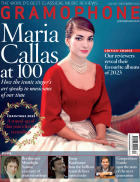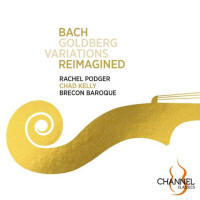Texte paru dans: / Appeared in: |
|
|
Outil de traduction |
|
|
Yet for Chad Kelly and his Goldbergs transcription for Rachel Podger and Brecon Baroque, it’s the former vision that has held the most inspirational sway – that of a composer at a personal and artistic crossroads throwing himself into a labour of love with the aim of displaying receptiveness and flair with the new galant melodic style, while simultaneously remaining true to his own cerebral contrapuntal language. In other words, a transcription bristling with vital human warmth and energy. Also one led by its new forces, from the occasional octave switch or tweak to some figuration, through to Kelly’s decision to partner with nonkeyboardist period-performance specialists and thus open the door to instrumentidiomatic interpretations unfettered by entrenched keyboard convention.
The fruits of all the above are instantly audible in the opening Aria, newly scored for solo violin and harpsichord (Kelly himself), so decisively does Podger claim it for her violin via the curve and off-kilter rubato of her phrasing, and her subtle embellishment of each repeat. Onwards, and especially effective transformations include Var 3’s duet between silvery-bright violin and wide, soft flute – a conversation between a diamond and a cloud; Var 7’s airily gambolling flute and bassoon, the flute then switching from bounce to legato for the repeat; Var 11 pared right back from its florid-textured original to violin and flute alone, minus all continuo; the dark, lower-strings beauty of Var 13; the way the lower woodwind and strings are employed throughout to bring warm, noble radiance – and nowhere more so than in the Quodlibet, Var 30, itself a constantly shifting kaleidoscope of instrumental colour and texture, preceded by an equally glorious Var 29 over which the suddenly virtuosity-blazing harpsichord reigns supreme, its freedom and sparkle supported by warm tutti interjections – then followed by the Aria returning not as before but instead transformed into a joy-filled tutti creation. In fact, cumulative power is everywhere across Kelly’s narrative.
So while nobody’s going to go wrong opting either for the warmly human, polished freedom of Dmitry Sitkovetsky with Mischa Maisky and Gérard Caussé (Orfeo, 8/86) or the more other-worldly period-aware beauty of Trio Zimmermann (BIS, 8/19), if you’re after finesse-filled joy and humanity coupled with whopping colouristic variety and cumulative power, Kelly’s is a new go-to. |
|




